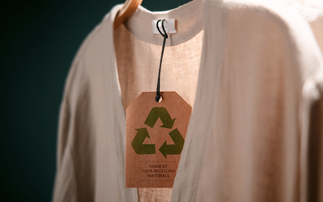From nurturing ocean carbon sinks to encouraging marine clean tech, there are steps all businesses can take to accelerate progress towards SDG14
Billions of people depend on the oceans for their food and livelihoods, but progress towards SDG14 remains stubbornly stuck in the slow lane. As the UN reflected in its most recent progress report, "increased efforts and interventions are needed to conserve and sustainably use ocean resources at all levels." Critics would argue that with coral reefs in rapid decline, over-fishing widespread, and oceans warming and acidifying at an unprecedented rate the UN's downbeat assessment is putting it mildly.
The transboundary nature of the seas can make effective government action difficult, as policy initiatives inevitably get bogged down in interminable negotiations and geopolitical power-plays. As such businesses have a key role to play in driving change so as to enhance and protect the marine environment. After all, it is the private sector that is both the primary cause of many of the pollution pressures placed on life under water and one of the main beneficiaries of the many economic benefits that flow from marine resources.
But what then can businesses do to advance SDG14 and get the world back on track for meeting this most critical of development goals. BusinessGreen takes a look at what businesses in a range of industries - from fishing to financial services - can do to develop an effective SDG14 strategy and better support the health of the world's marine ecosystems.
Shift perspective on the seas
As fish stocks have plummeted, so has the profitability of the commercial fishing industry. But rather than work with scientists to restore healthy populations, in Europe, the powerful commercial fishing lobby has pushed for catch limits far beyond scientifically recommended levels - even using press passes to gain access to critical ministerial negotiations.
For their part, officials have often been more than happy to accede to industry representatives demands for higher quotas, according to Professor Callum Roberts from York University.
"In Europe, fisheries ministers get together to agree quotas for fish stocks, but instead of accepting the size of the cake and dividing it up, they start by saying let's make a bigger cake," Roberts argues.
A key starting point, then, is for businesses to treat the oceans not as an alien wilderness, but rather as a key asset base for their profits.
"If you establish a hatchery, you don't just use what's there at the start and then let it go to rot - you invest in maintaining it," says Essam Y Mohammed, head of blue economy at the International Institute for Environment and Development (IIED). "The same mentality is needed for marine resources."
Harness ocean-based solutions
While most people are aware of the role forests play in soaking up carbon dioxide, fewer know that oceans do the same. Both coastal habitats, such as mangrove and seagrass, and plankton on the open oceans, can act as highly effective carbon sinks.
Experts suggest that businesses should look for ways to harness this capacity to make their operations carbon neutral - or even carbon negative. A land-focused 'nature based solutions' sector is fast emerging as carbon intensive industries look to fund forest and peatland programmes that can help soak more emissions out of the atmosphere, but the oceans crucial role as a carbon sink risks being overlooked.
One sector with scope to deliver ocean-based offsets is aquaculture, an industry that is expanding at a rapid rate, but which has faced criticism over its environmental footprint.
Professor Sverre Steen from the Norwegian University of Science and Technology suggests that aquaculture firms should cultivate seaweed to offset their greenhouse gas emissions.
"Prognosis has shown that seaweed can absorb really large amounts of carbon dioxide when grown in large-scale farms," he says. "This can then be used simply as a deposit, or as a raw material for marking different types of food stuff or energy."
Aquaculture and other avenues for enhancing the ocean's capacity as a carbon sink come with inevitable risks and challenges, especially when it comes to ensuring promised long term emissions savings are delivered. But if these issues could be overcome then a potentially massive new green industry could quickly emerge, playing a critical role in tackling escalating global temperatures.
Prepare for and support regulatory change
Dealing with the crisis afflicting the world's oceans is going to require deep-reaching regulatory change. This will affect many industries, but shipping firms in particular need to make sure they are prepared, argues Erik Giercksky from the UN Global Compact.
"If you build a ship today it will last 30 years, and the only thing we know for sure is that emissions regulations will be much stricter 10 years down the line," he says. "Companies need to listen to experts and make sure they're aligned."
Firms can do more than just passively accept new regulations, however. Private companies have a big influence on policy, and they can use that influence to support industry-wide regulations to tackle environmental degradation. Some progressive shipping companies are already doing this with wide-ranging calls on the International Maritime Organisation to strengthen its climate plans. But these progressive trail-blazers could use with vocal support from more of their peers.
Marine scientist Marcus Eriksen says such an attitude is also urgently needed in the context of plastic pollution. "There needs to be much tougher regulation," he says. He points to revelations last year that a front group for the Plastics Industry Association was lobbying for bills that would make it impossible to ban single-use plastics in US state legislatures. At the time, Coca-Cola, PepsiCo and SC Johnson were all Association members, although all have since quit following a public outcry.
"Industry has fought intensively against any semblance of responsibility to design products and packaging to be truly recyclable," Eriksen says. "This really needs to change."
Again, changes are already afoot with a growing band of green trade bodies calling for a more progressive approach, but if governments are to have the confidence to introduce robust new regulations then such groups need to keep growing in size and influence.
Support ocean-related clean tech
The oceans are set to provide a critical crucible for the global clean tech revolution. The offshore wind industry is already transforming the economics of clean power in northern Europe and has the potential to rapidly emerge as a globally significant source of energy, while developers retain high hopes that wave and tidal energy could yet follow suit. At the same time the global shipping industry will only be able to decarbonise if new clean technologies that enable battery, fuel cell, wind, and biofuel propulsion are commercialised fast. Similarly, the fledgling 'fake meat' alternative protein sector - as well as the fast expandingf aquaculture industry - could yet play a crucial role in curbing over-fishing.
Not all companies are in a position to invest directly in crucial R&D efforts to advance these three ocean-based clean tech industries, but virtually every company is a customer, directly or indirectly, of the energy, shipping, and food sectors. As such, all businesses can help apply pressure by calling on their suppliers and supply chains to demonstrate how they are planning to decarbonise and deliver on the SDGs over the next decade.
Consider the risk and insurance implications of changing seas
Finally, rising seas and changing weather patterns will put trillions of dollars of coastal infrastructure at risk over the next few decades. These escalating risks have huge implications for everyone, but two industries in particular are right in the climate impact firing line: insurance and investment.
Investors need to quickly recognise that rising sea levels could trigger massive stranded asset risks, especially if some of the worst case scenarios come to pass. It is entirely plausible that some of the world's largest economic hubs and most expensive seafront properties could succumb to worsening storms over the course of the century.
Similarly, insurers face some tough choices as they weigh up the risks posed by the changing seas. However, there are opportunities here too if industry's as influential as investment and insurance crank up pressure on companies to embrace more sustainable practices.
As Giercksky concludes: "if firms are finding it difficult to get insurance or to finance shipping vessels, they'll soon be out of the game. It's an effective way to apply pressure."






